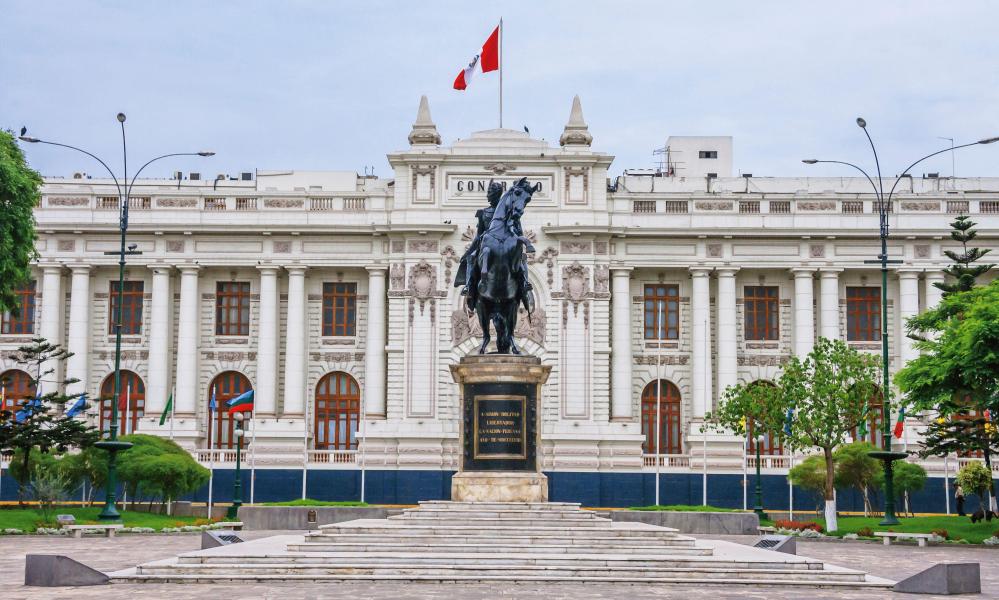Prosecutors in Peru are delving into a profound scandal involving alleged sexual exploitation within the national Congress, which has already faced widespread public disdain. The investigation was ignited by a tragic incident involving Andrea Vidal, a 27-year-old lawyer who was fatally shot in a targeted attack. Just prior to her death, Vidal had been working for Jorge Torres Saravia, the former legal and constitutional adviser to the Congress, who now faces serious accusations of running a prostitution ring that coerced young women into sex with lawmakers in exchange for political favors. Following the horrifying assassination of Vidal and her taxi driver, the prosecutor’s office launched an inquiry into these suspicious activities, leading to a damning scrutiny of the political landscape in Peru.
The startling connection between the murder and the corruption scandal highlights the dismal state of trust in public institutions. Public confidence in both the Congress and President Dina Boluarte has deteriorated dramatically in recent months, exacerbated by a surge in organized crime, including racketeering and targeted killings. Allegations against Torres imply that Vidal’s purported role in the prostitution ring involved the recruitment of young women, who were presented as administrative staff in various political factions within Congress. This revelation has left many lawmakers, including Juan Burgos, shaken, as it suggests a negotiation process whereby lawmakers exchanged legislative support for sexual favors.
The gravity of these findings reflects a disintegration of ethical standards within Peru’s political sphere. Susel Paredes, an independent lawmaker, openly criticized the current state of affairs, stating that the political parties have indulged in the systematic breakdown of moral integrity, further entrenching their grip on power by exploiting job placements within Congress as a means of control. This development indicates a severe ethical decline, leading to an environment where such illicit activities are becoming normalized. Paredes’ assertions underline the reality of a pervasive corruption that runs deep within the governing bodies, introducing worries about the implications for democracy in Peru.
Alvaro Henzler, head of the pro-democracy organization Transparencia, echoed these concerns, noting an alarming trend towards the erosion of ethical conduct among public officials. He expressed dismay at the current crop of politicians in Peru, whose low approval ratings indicate a significant disconnect between government practices and public interests. Henzler criticized lawmakers for implementing policies that undermine democratic principles while simultaneously shielding themselves from potential corruption investigations. The confluence of these unethical practices and the increasingly dire state of democracy is starkly evident, revealing a system seemingly designed to protect vested interests over the will of the electorate.
Public sentiment has continued to falter in the face of escalating corruption and violence within the nation. President Boluarte’s situation has further complicated matters, as her personal integrity has come into question amid investigations into possible illicit enrichment, including luxury possessions allegedly amassed during her tenure. This investigation adds layers to the scandal, casting a long shadow over her leadership and further alienating constituents who have already lost faith in the institutions meant to uphold justice and democratic governance. Residents express concern over the near-total erosion of trust, facing a government associated more with scandal than with service.
In summary, the sex-for-votes scandal in the Peruvian Congress represents not only a shocking abuse of power but also a significant crisis for the nation’s democracy. It reveals a broader decay within the electoral and governing processes, as officials appear to engage in morally reprehensible practices without regard for public welfare. As investigations proceed, the opportunity for congressional reform and restoring public trust hangs precariously in the balance, with citizens looking for accountability and transparency from those who govern. The urgent call for reform resonates as the country desperately seeks to break free from the cycle of corruption that has come to typify its political landscape.

